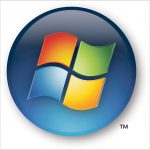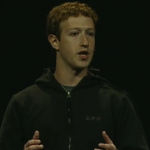Google announces Apps for Government in light of LA rollout delays

Following news over the weekend that it had missed the deadline to provide the city government of Los Angeles with its own email and collaboration infrastructure, Google today announced "Google Apps for Government".
Google Apps for Government provides more secure versions of the popular consumer-facing Web services that Google offers, such as Gmail, Google Calendar, Docs, Sites, and even YouTube. All of the apps are compliant with the 2002 Federeal Information Security Management Act (FIMSA, PDF here,) and operate at the "moderate" level. FIMSA was laid down by the National Institute of Standards and Technology (NIST) to ensure federal agencies and their contractors were using secure and reliable software and systems.
DMCA revised: unlocking, jailbreaking phones, e-book text-to-speech, potentially fair use

Methods for bypassing DVD encryption, unlocking mobile phone carrier locks, and other content protection could be argued as fair use under a revision of the Digital Millennium Copyright Act, Librarian of Congress James H. Billington announced today.
Every three years, the Library of Congress must determine if there are any types of works that can be exempt from Section 1201 of copyright law, also known as "Circumvention of Copyright Protection Systems."
AT&T announces Wi-Fi "Hotzones" in Charlotte, Chicago, to help data congestion

Last May, AT&T launched a project called "Hotzones" in New York City's Times Square aimed at fixing traffic problems by blanketing the area in Wi-Fi signals. Today, the carrier announced the project is coming to more cities, including Charlotte, North Carolina today and Chicago, Illinois in the coming weeks.
Over the last three years, AT&T says its mobile data traffic has grown by more than 5,000 percent, and in the most densely populated areas of the U.S., connectivity is often an issue. New York and San Francisco proved to be especially troublesome for the company's data network, and in 2009, AT&T Mobility's CEO Ralph de la Vega said they were "performing at levels below our standards," but that they were going to be fixed.
Android grew 350% in UK last quarter, says research

Android's share of the UK mobile market grew by more than 10 percent in a single quarter, International market research firm GfK's Retail and Technology division announced today. The mobile operating system appears to be experiencing the same explosive growth the U.S. showed earlier this month.
According to GfK's research, smartphones reached nearly 67% penetration in the contract mobile device market in the second quarter, and by June had already grown to 73.5%. While the sale of new mobile contracts didn't even grow by a single percentage point, smartphone adoption is skyrocketing.
India's $35 tablet takes on OLPC with Android?

In the quest to deliver a high-tech learning device that anyone can afford, India's Human Resource Development Minister, Kapil Sibal unveiled a prototype for a $35 tablet computer Thursday. Sibal said it is an answer to the "hundred dollar laptop" from MIT, which later launched as the One Laptop Per Child project.
In 2006, India's Education Secretary Sudeep Banerjee reportedly criticized the $100 laptop project as an underdeveloped idea that was "pedagogically suspect," and research began within India to create a local version of the device.
Microsoft refreshes deal with ARM for Windows Phone, Embedded

Microsoft has signed a new licensing agreement for the ARM architecture, extending the two companies' relationship that has already spanned 13 years. ARM's major intellectual property is a 32-bit reduced instruction set computer (RISC) architecture that is commonly used in embedded and mobile processors.
ARM-based processors were most common in low power computing environments, and more powerful consumer computers used the x86 architecture. But as smartphones have become more powerful, and larger devices based on mobile operating systems are becoming more common, ARM is moving out of the low power sector and into the mass market.
Next year, GM cars will be controllable by mobile phone

Today, OnStar and General Motors announced a plan to bring mobile phone-based controls to 2011 Chevrolet, Cadillac, Buick and GMC automobiles.
The service will be included in OnStar's subscription package at no extra charge, and users will be able to download an OnStar app onto their mobile device that grants remote access to their vehicle.
Microsoft reports record quarterly earnings, remains ahead of Apple

Microsoft published its earnings for the fourth quarter of 2010, and the software company reported revenue of $16.04 billion, a 22% increase over the same period last year, and $340 million ahead of Apple which also had a record-setting quarter.
Apple exceeded Wall Street's estimates and primed suspicion that the company may finally overtake Microsoft in revenue, but Microsoft also beat Wall Street expectations this quarter, so Microsoft remains the leader.
Fail Whale Endangered? Twitter adding new dedicated data center this year

Twitter on Wednesday announced that it is relocating its technical operations infrastructure to a custom-built data center in the vicinity of Salt Lake City, Utah later this year. The move is expected to help the site's reliability and availability.
Popular microblogging site Twitter is estimated to have over 75 million users, and to be growing at a rate of about 6.2 million new accounts per month.
Samsung Galaxy S' not-so-secret weapon: TouchWiz 3.0

Samsung's custom Android user interface is the first thing we see on Galaxy S family of phones, but seems to be the last thing anyone is talking about.
Walt Mossberg from The Wall Street Journal recently reviewed the two available Galaxy S devices and seemed hung up on comparing them to the Apple iPhone 4, going so far as to call them "an appealing alternative to the iPhone," as if the iPhone is the standard first choice when it comes to buying new phones.
'Facebook Stories' launches to prove site is not just for stalking, advertising, and Farmville

Today, to celebrate the 500 million user milestone, Facebook founder and CEO Mark Zuckerberg announced the launch of Facebook Stories, a new application dedicated to all the stories of people using Facebook in unique and inspirational ways.
These stories are arranged either by geographic location (as shown on a Bing Map) or by theme. The themes include: Crime Fighting, Movements, Causes, Grief, Rescues, Small Business, Support Groups, and many more.
Most Android devices are running Eclair, but FroYo is approaching fast

The fact that there are two main Android development tracks often gets lost in the shuffle.
Google's retirement of the Nexus One reminded consumers that, hey, that's the only Android phone out there right now running FroYo (Android 2.2,) and cutting its availability is stifling the bleeding edge of Android technology, isn't it?
ISP Launches in Sweden, aims to create safe haven for pirates

Sweden's copyright and telecommunications reform party, officially known as the Pirate Party, has been involved with a lot of drama in the last year, mostly surrounding its involvement with The Pirate Bay torrent tracking site and its related legal fallout.
Now, the Pirate Party is getting behind a startup ISP called, appropriately, PirateISP, which provides broadband Internet connections that are regulated according to the party's politics: private, secure connections where no logs are retained, and no user data is available to the Swedish Government.
Microsoft releases beta of latest free anti-malware service Security Essentials

Today, Microsoft has released the next version of Microsoft Security Essentials in beta. The free anti-malware service was first debuted in 2009 after Microsoft discontinued Windows Live OneCare.
The beta, available on Microsoft Connect today, includes a number of new features: a new protection engine and network inspection system, integration with Windows Firewall, and integration with Internet Explorer for web-based malware protection.
The entertainment Industry debuts yet another DRM scheme: Ultraviolet

Today, the Digital Entertainment Content Ecosystem (DECE) announced a new consumer-facing brand for the DRM system it has been working on for more than two years: UltraViolet.
DECE has more than 60 members, and includes most of the biggest names in content distribution and consumer electronics: Best Buy, Fox, Microsoft, NBC Universal, Sony, Warner Brothers, Panasonic, Paramount Pictures, Dolby Labs, and Comcast, to name just a few.
Tim's Bio
Tim Conneally was born into dumpster tech. His father was an ARPANET research pioneer and equipped his kids with discarded tech gear, second-hand musical instruments, and government issue foreign language instruction tapes. After years of building Frankenstein computers from rubbish and playing raucous music in clubs across the country (and briefly on MTV) Tim grew into an adult with deep, twisted roots and an eye on the future. He most passionately covers mobile technology, user interfaces and applications, the science and policy of the wireless world, and watching different technologies shrink and converge.
© 1998-2025 BetaNews, Inc. All Rights Reserved. Privacy Policy - Cookie Policy.
